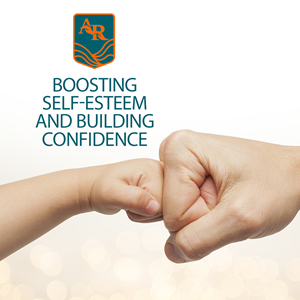
Many children of all ages struggle with self-esteem and self-confidence. The two concepts often go hand-in-hand. While self-doubt and uncertainty happens to all of us (even as adults), children are in their formative years and some simple intervention through activities can play a significant role in their long term development of self-confidence. These activities can be adapted for children of all ages. Plus they’re great because they can be completed at different times and help children recognize their growth!
Assertive Communication Worksheets
Anybody suffering from low self-esteem might hear the phrase “assertive communication” and immediately think that it’s out of line with their personality and far beyond their reach. However, that’s not the case.
There are three types of communication styles: aggressive, assertive, and passive. Aggressive communication is mean, sarcastic, bullying in nature, has inappropriate honesty, puts others down, and often has glaring eye contact. Passive communication is perceived as too weak, often quiet, dishonesty about your emotions, allows others to dominate conversations, and often has avoidant eye contact. Assertive communication falls right in the middle of aggressive and passive. Assertive communication is warm and polite but firm. It requires friendly eye contact and allows the communicator to build up others as well as themselves. Breaking down these communication styles helps children see that being assertive is far different from being aggressive.
An assertive communication worksheet like the one found here can help children identify times where they have used assertive communication successfully and record how it made them feel and reflect on the empowerment they received.
Self-Esteem Journal
Journaling is a very simple yet powerful technique to process feelings and expend emotions. Using journaling as a tool to build self-confidence is a really great concept for all ages. Here are some daily prompts to be sure to include:
- “One thing I did great at today…,”
- “Today it was interesting when…”
- “I made someone smile when…”
Something About Me Activity
Children who are suffering from low self-esteem and poor confidence can struggle to have positive self-talk. They become so fixated on their perceived flaws that their inner monologue perpetually continues to put them down even further. Breaking that cycle with a “Something About Me” activity can have a huge impact on their negative self-talk and overall confidence. Questions can be easily adapted but some good ones to include are:
- My friends think I’m awesome because…
- My classmates say I’m great at…
- I feel very happy when I…
- My favorite thing about myself is…
- Something that I’m really proud of is…
- I make my family happy when I…
- One unique thing about me is…
Get as creative as you’d like with it. This activity could even be done in the car on the way to school or used to create meaningful conversation over dinner. If it’s written down, hang the paper somewhere that your child can see it and reflect on the answers.
Family Game Night
Everyone loves family game night but if you have a child that is struggling to realize how amazing they are, there are a couple of games that are very powerful at improving self-confidence as well as communication among families. These games are often used by therapists when interacting with pediatric clients but you certainly don’t have to be a therapist to reap the benefits of gameplay!
This game encourages conversation and helps children of all ages as well as families as a whole recognize their strengths and weaknesses and discuss their thoughts. These thought-provoking questions help to build rapport and boost self-esteem by promoting a positive image of each player.
StrongSuit eliminates competition as it doesn’t focus on a solitary winner but instead requires players to work together to build a tower. A series of questions works to build connections between personal, social, and emotional strengths of each individual player. StrongSuit helps players improve their coping skills, boost creative thinking, and encourages players to work through frustrations by themselves and as a group in order to complete a common goal.
It’s important to remember that building self-esteem and improving overall confidence takes time and requires ongoing maintenance for many children. It never hurts to continue to actively seek out opportunities for meaningful interactions and self-reflection in order to maintain healthy levels of self-esteem.
